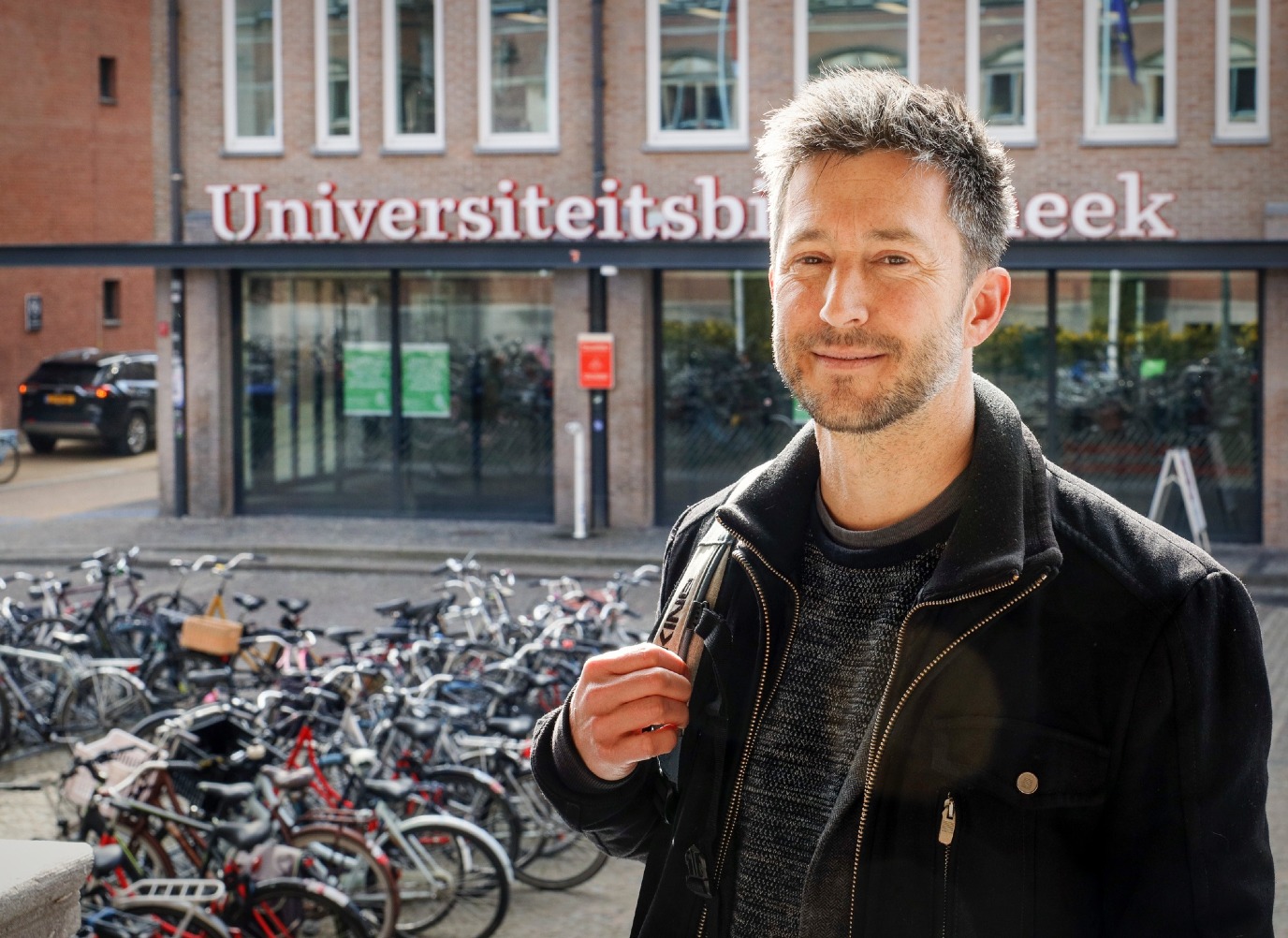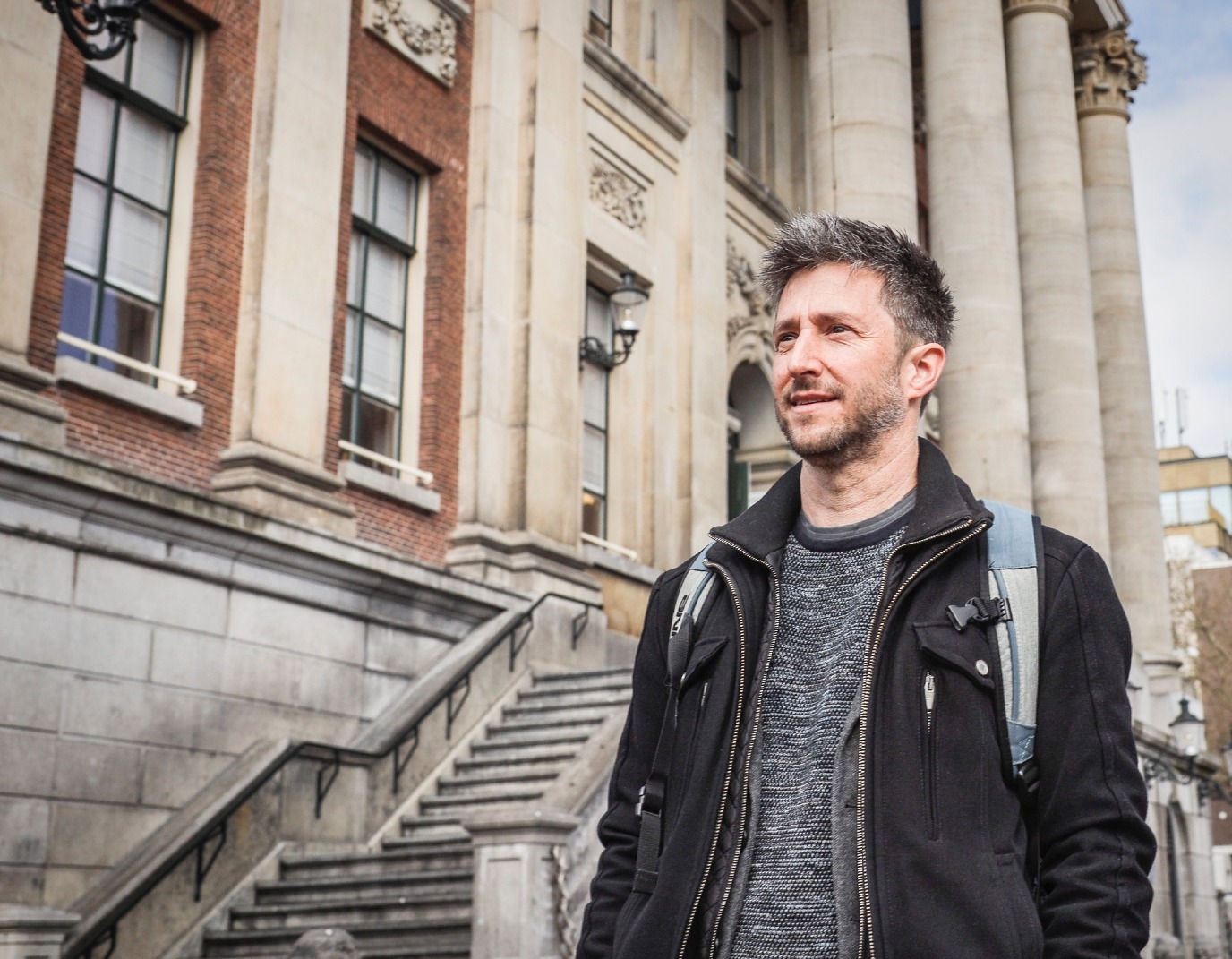Elitism as threatening as populism

In the case of racism or sexism, people are judged by their skin colour or gender and considered different and inferior based on that. But there is also a phenomenon called educationism: highly educated people looking down on those who are less educated. Social psychologist Toon Kuppens draws attention to this form of discrimination: ‘It’s damaging to those affected and to society as a whole.’
Text: Gert Gritter, Corporate Communicatie RUG / Photos: Henk Veenstra
Dating sites and insurances
The interview takes place at a time when the UG is running a campaign to attract Master’s students by using the slogan ‘Outsmart the ordinary’. These words could be read as ‘Be smarter than the common people’. Kuppens: ‘To me, it’s a shame that my own University chooses such a slogan. It seems to me a typical example of a feeling of superiority found among university-educated people, which contributes to the current political polarization.’ The researcher, who is originally from Belgium and also lived in the UK for a while, was upset when he first heard ads in the Netherlands for dating sites and insurances for higher educated people. ‘Educationism seems to be more prominent here than in the countries around us. Imagine if they said “Dating only for white people”’.
Secondary and tertiary
Kuppens uses the terms ‘highly educated’ and ‘lower educated people’ reluctantly, and only because everyone then knows which groups you are talking about. They do not give any information about the quality or societal relevance of a degree programme. ‘The terms “lower” and “high” do say something about the status that is usually ascribed to certain degree programmes, and that is exactly the problem that we want to address.’ Kuppens prefers to talk about people who have received tertiary and secondary education. ‘Robbert Dijkgraaf, former Minister of Education, identified the problem and took steps to make sure the educational gap became a topic of discussion. It’s common practice to speak of theoretically and practically trained individuals. In a way, it’s better because “practical” sounds much more positive than “lower” but the problem is that those labels don’t always seem to fit. Some degree programmes in higher education are practical, and practical and theoretical knowledge often overlap. In addition, there’s a risk that people may think that the problem will go away by simply changing the labels, preventing real change from happening.’

Stigma
‘Highly educated people often talk about the lower educated in a condescending way. How they listen to the “wrong” music, watch “bad” TV shows, have “wrong” hobbies. If you received higher education yourself, you hardly notice it. But if you haven’t, you constantly get the feeling: I’m not good enough, I don’t count, I’m stupid, I’m not taken seriously. There’s also a lot of emphasis on personal responsibility when it comes to completing a degree programme, seen as the “logical” consequence of intelligence, motivation, and hard work. As if it was purely an individual merit. However, even if education were entirely fair and meritocratic, it would still have similar or perhaps even worse negative consequences in the current system. If the nature of your future has already been partially determined at a young age, and you are given the responsibility for that—whether justly or unjustly—it has psychological consequences: feelings of pride among the highly educated and a stigma against the lower educated.’
Sense of belonging and bubbles
‘Highly educated people feel connected to each other, which influences how they judge others. The highly educated also tend to have an unfounded preference for their own group. We know that on average they have a more homogeneous network, i.e. live in a bubble to a greater extent than people who have not received secondary education.’ Do lower educated people not have a sense of belonging to their own group? Kuppens: ‘Barely. A sense of belonging starts with having your own identity but, in their case, it has been negatively defined as not having a certain degree. That does not constitute a binding factor. You can’t unite people around something that’s absent. The lower educated don’t have their own bubble. What’s more likely to happen is that part of the lower educated will form groups according to things such as ethnicity, religion, or gender. It’s different for students of secondary vocational education, by the way. They do have a useful certificate, even if it doesn’t have the same standing as having one from higher vocational or university education. But it does make it easier for them to create a positive group identity out of it, as opposed to people who haven’t received secondary education.’

‘I love the poorly educated’
The gap between the highly and lower educated is increased by socioeconomic differences, such as income level, job security, living environment. As highly educated people show more in-group bias, they have greater confidence in politics and are more satisfied with the state of the democracy and the political status quo. On the other hand, lower educated people are more often dissatisfied and experience more stress as a result of economic and financial insecurities. Nowadays, more than half the population has pursued a degree at tertiary or secondary education level. The rest of the population is low educated. These are considerable groups that are drifting apart, which is reflected in the rise of populism. Trump referred to this by saying ‘I love the poorly educated’. Kuppens is severely concerned about this division. ‘Both populism and elitism can disrupt our democratic system and they can reinforce one another, which causes countries to be ungovernable. For some of you, it will be a painful message that the higher educated also play a role in creating circumstances in which populism can grow. As a researcher, I see it as my duty to point it out.’
Vaccine against prejudices
What to do about ‘degree discrimination’? Kuppens: ‘It has parallels with other forms of discrimination, such as those based on culture or ethnicity. A social mix works in this case as well: people with different educational backgrounds living in the same neighbourhood or meeting each other in different ways. Of course, this doesn’t solve everything but it could be a vaccine against prejudices, making people think less negatively and stereotypically about the other. Something also needs to change in the increasing income differences between someone with and without a certain degree. These differences keep getting bigger and more unfair, without any apparent economic reason for it. The most important thing, however, is probably to stop judging people based on the level of their education. It would suit the University, therefore, to teach students and staff some modesty and be more inclusive towards those with less extensive education.’
More information
| Last modified: | 28 April 2025 09.31 a.m. |
More news
-
15 April 2025
Impact gaswinningsproblemen op Groningers: negatieve ontwikkeling zet niet door, maar meerdere keren schade blijft een punt van zorg
Impact gaswinningsproblemen op Groningers: negatieve ontwikkeling zet niet door, maar meerdere keren schade blijft een punt van zorg
-
17 March 2025
Liekuut | The high price of conflicts
According to Carsten de Dreu, Professor of Foundations of Cooperation and Social Organization at the University of Groningen, a lot can be learned from conflicts.
-
10 March 2025
Science for Society | Memory Lab for higher marks
Learning facts at school is something hardly anyone likes. The day before a test, pupils cram as many words or names as possible into their heads, only to hopefully remember them the next morning and then forget them again after the test.
